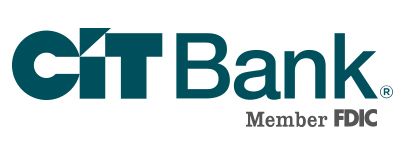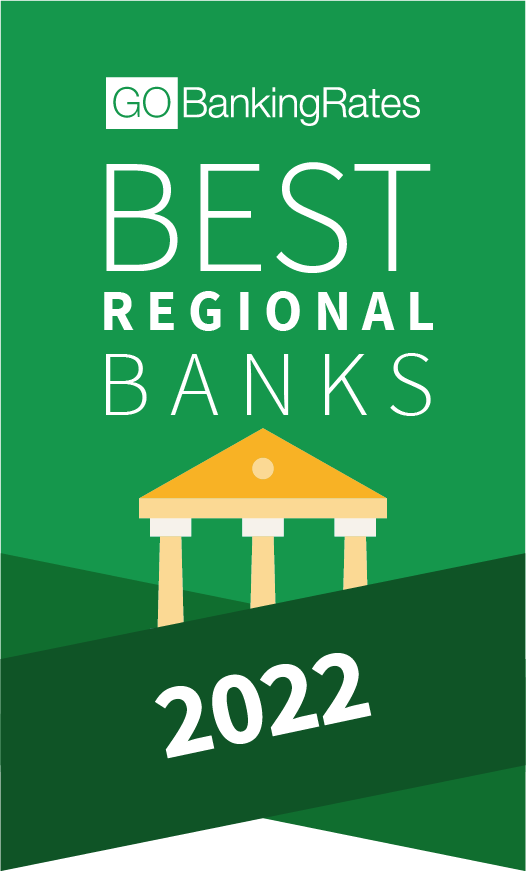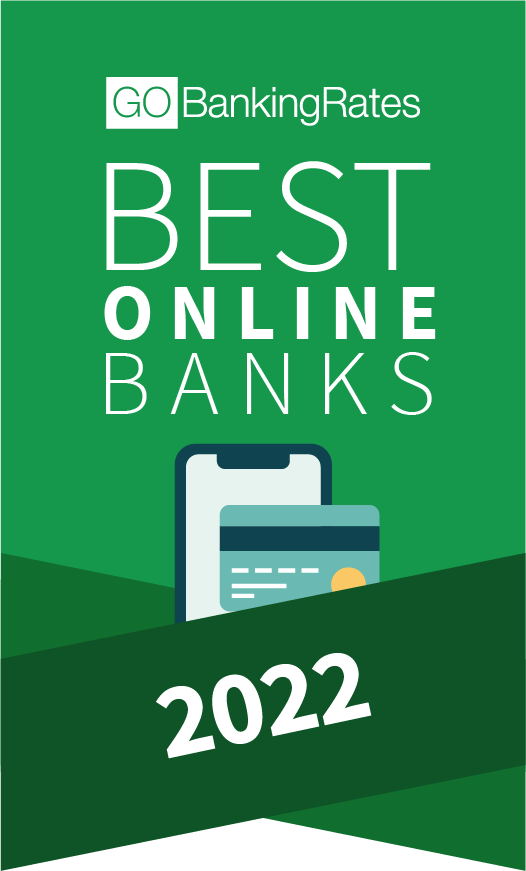CIT Bank Review: An Online Savings Account That Really Pays
Commitment to Our Readers
GOBankingRates' editorial team is committed to bringing you unbiased reviews and information. We use data-driven methodologies to evaluate financial products and services - our reviews and ratings are not influenced by advertisers. You can read more about our editorial guidelines and our products and services review methodology.

20 Years
Helping You Live Richer

Reviewed
by Experts

Trusted by
Millions of Readers

GOBankingRates Score
Quick Take: It pays to save at CIT Bank. This online-only bank offers above-average interest rates on its selection of deposit accounts and certificates of deposit. When you commit to saving and make it a habit, you get access to the bank's best rates.


Pros
- Annual percentage yields well above the national average
- No monthly maintenance fees
- Higher APY available to customers who make regular deposits to savings account
Cons
- No physical branches for direct bank
- No check writing option with checking account
About CIT Bank
CIT is a division of First Citizens Bank. First Citizens Bank is among the largest family-controlled bank in the United States. Parent company First Citizens has more than $200 billion in assets, with a network of over 500 branches and offices in 30 states.
Checking Account
CIT has one checking account, called eChecking. Unlike traditional checking accounts, this account doesn’t come with actual checks. You can use a debit card, your online account or the mobile app to make transactions.
eChecking is an interest-bearing account that pays very competitive rates, with an annual percentage yield of on balances under $25,000 and for balances of $25,000 or more. The minimum opening deposit is $100, and there are no monthly maintenance fees. CIT Bank doesn’t charge ATM fees either, and customers can get up to $30 in other banks’ ATM fees reimbursed per month.
Although there are no checks with this account, customers get unlimited withdrawals through the mobile app.
Savings Accounts
CIT Bank offers three savings account options: Savings Connect, Platinum Savings and Savings Builder. Here’s what you should know about each one.
Savings Connect
CIT Bank’s Savings Connect account offers a high-yield interest rate and requires a $100 minimum opening deposit. No monthly maintenance fee applies to this account, so your earnings will stay where they should — in your account. The account pays an APY of for all balance tiers, which is a much higher yield than the national average. Additionally, check deposits and transfers are made easy via the bank’s mobile app.
Platinum Savings
CIT Bank’s Platinum Savings account offers the bank’s highest savings APY of . However, there’s a catch: To earn APY, you’ll need to maintain a minimum balance of $5,000. Balances under $5,000 only earn APY.
Even so, this could be an alternative to a certificate of deposit in case you will need to access your money. Standard CD options charge an early withdrawal penalty if you have to access your funds. With this account, you can withdraw part (or all) of your balance without a penalty, and if the balance falls below the $5,000 minimum, you’ll still earn APY.
Like all of CIT Bank’s savings options, the account earns daily compounding interest to maximize returns and has no monthly maintenance fees.
Savings Builder
Like the Savings Connect account, CIT’s Savings Builder requires a $100 minimum opening deposit and has no monthly maintenance fees. However, it’s a tiered-interest account that only pays up to APY — much less than the Platinum or Savings Connect account. New account holders receive a 0.995% interest rate through the first Evaluation Day. Then, as long as you maintain a minimum balance of $25,000 or make a monthly deposit of $100 or more, you’ll continue earning APY.
Money Market Account
CIT Bank’s Money Market account pays a APY, which is higher than the national average. The account requires a $100 minimum deposit but charges no monthly service fees. You can access the account through the mobile app.
CD Accounts
CIT Bank offers three types of CDs: Term CDs, Jumbo CDs and No-Penalty 11-Month CDs. None charge monthly maintenance fees, and some can be set up for automatic renewal.
Term CDs come in terms of six months to five years and pay an APY of to . The No-Penalty 11-Month CD has an APY of and charges no penalty if you access your funds before maturity. Jumbo CDs come in terms of two to five years, with an APY that ranges from to .
How CIT Bank Earned Its Scores
Rates
CIT Bank offers a very competitive APY of on checking account balances under $25,000 and for balances of $25,000 or more. You can also get a APY with the Savings Connect account, regardless of your balance.
Fees
There are no monthly maintenance or service fees on CIT Bank’s checking, savings, money market or CD accounts. The bank also charges comparatively low fees for wire transfers and charges no fees for returned deposit items.
Opening Deposit Requirements
CIT Bank has a $100 minimum opening deposit for its checking and savings accounts. That’s not a huge amount of money, but many banks have no minimum deposit requirements.
Accessibility
CIT’s direct bank does not have branches, so the best way to access its accounts is with the mobile app. The CIT Bank app has a 4.7 rating out of 5 on the App Store and a 4.7 on Google Play.
CIT Bank vs. Competitors
As part of any CIT Bank review, it helps to compare the bank’s products and services with other banks.
CIT Bank vs. Citi®
Both CIT Bank and Citi offer low minimum deposit requirements, though CIT has the edge when it comes to its best savings APY, which is higher than Citi’s best savings APY. Customers who need 24-hour access to a live customer service representative should consider Citi.
CIT Bank vs. Ally Bank
CIT and Ally are both online-only banks that offer excellent rates. CIT emphasizes savings products, and its Savings Builder account is a good choice for customers who want to make saving money a habit. Ally may be a better option for those who want to do one-stop banking across many different products and services.
CIT Bank vs. Capital One
CIT Bank and Capital One accounts both come with competitive APYs for savings and checking accounts. Customers who use ATMs can take advantage of CIT’s generous ATM rebate.
Capital One customers enjoy above-average rates no matter how much money they keep in the bank.
Final Take
CIT Bank has plenty of enticing features, but you have to be comfortable with digital banking before opening an account there. The APYs available on CIT Bank’s high-yield savings accounts make it a good choice, even among competitors with online savings accounts.
CIT Bank FAQ
Here are the answers to some commonly asked questions about CIT Bank.- Is CIT Bank part of Citi?
- CIT is a division of First Citizens Bank.
- What does CIT Bank stand for?
- CIT stands for Commercial Investment Trust.
- How long has CIT Bank been in business?
- CIT started doing business in 1908 by offering financing for businesses in St. Louis.
- How long do CIT Bank transfers take?
- It can take up to two business days to complete fund transfers. You can transfer funds from other CIT accounts or external accounts at other banks.
- How do I withdraw money from CIT Bank?
- You can transfer your money to a different account using an electronic funds transfer or a wire transfer. Alternatively, you can request a check from the bank.
- Does CIT Bank offer free money for signing up for an account?
- CIT Bank does not currently offer free money to customers who sign up for new accounts.
More on CIT Bank
- How To Avoid CIT Bank’s Monthly Maintenance Fees
- CIT Bank CD Rates
- CIT Bank Routing Number
- CIT Bank Holiday Hours
Compare to Other Institutions
- Varo Bank Review
- Marcus by Goldman Sachs High-Yield Online Savings Account Review
- Capital One Bank Review
- Valley National Bank Review
- Citizens Access Review
Cynthia Measom and Vance Cariaga contributed to the reporting for this article.
Rates are subject to change; unless otherwise noted, rates are updated periodically. All other information on accounts is accurate as of Aug. 13, 2024.
Editorial Note: This content is not provided by any entity covered in this article. Any opinions, analyses, reviews, ratings or recommendations expressed in this article are those of the author alone and have not been reviewed, approved or otherwise endorsed by any entity named in this article.
 Written by
Written by  Edited by
Edited by 









